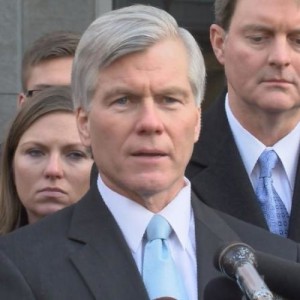Political Corruption Made Easier: McDonnell v. United States
WRITTEN BY: Anjelica Cappellino, Esq. & Prof. John Meringolo, Esq.
On Monday, June 27, 2016, politicians and their friends breathed a collective sigh of relief when the United States Supreme Court unanimously vacated the conviction of former Virginia governor, Bob McDonnell. The decision, authored by Chief Justice John G. Roberts Jr., narrowed the definition of an “official act” and what it means in the context of bribery and honest services fraud. As a result, ostensibly politicians will be able to more freely provide favors to others.
McDonnell and his wife were convicted on charges of honest services fraud and Hobbs Act extortion in connection with their acceptance of $175,000 in loans and gifts from the chief executive officer of a nutritional supplement company. In exchange for the monies, the government alleged that McDonnell committed “official acts” in his capacity as governor, to facilitate Virginia’s public universities to perform research studies on the CEO’s nutritional supplements. The government alleged these “official acts” included hosting and attending events, and contacting and promoting the CEO’s products to other government officials. McDonnell v. United States, 579 U.S. __ (2016) at 10. Although McDonnell was found guilty at trial, the Supreme Court vacated the conviction, which hinged on the definition of an “official act.”
Under 18 U.S.C. § 201, the statute that proscribes the bribery of public officials, an “official act” is defined as “any decision or action on any question, matter, cause, suit, proceeding or controversy, which may at any time be pending, or which may by law be brought before any public official, in such official’s official capacity, or in such official’s place of trust or profit.”
First, the Court concluded that the terms “cause, suit, proceeding or controversy,” “connote a formal exercise of governmental power, such as a lawsuit, hearing, or administrative determination.” McDonnell, 579 U.S. __ at 20. The Court held the terms “question” and “matter” are similar in nature to a “cause, suit, proceeding or controversy,” and therefore, cannot be broadly applied. Second, the Court held that the requirement in 18 U.S.C. § 201(a)(3), stating that the question or matter must be “pending” or “may by law be brought,” before “any public official,” suggests that it is a matter “that is relatively circumscribed – the kind of thing that can be put on an agenda, tracked for progress, and then checked off as complete.” Id. at 22. Therefore, the Court held that “[u]nder that interpretation, setting up a meeting, calling another public official, or hosting an event does not, standing alone, qualify as an ‘official act.’” Id. at 19.
What does this mean for the future of political bribery and honest services fraud cases? It narrows the reach of the statute. If an “official act” must be a formalized exercise of power, on a question or matter that can be tracked for progress, arguably a politician may now provide favors in a more informal, tempered way. Therefore, McDonnell is likely to positively impact politicians and other government officials who dole out favors to those who provide them gifts and other benefits. Understandably, and especially in our currently unstable political climate, lax interpretations of bribery statutes are not likely to go over well with the public.
On the other hand, however, McDonnell does tenuously open the doors for more honest and free-flowing communications between government officials and the individuals they represent. As Chief Justice Roberts states:
[t]he basic compact underlying representative government assumes that public officials will hear from their constituents and act appropriately on their concerns – whether it is the union official worried about a plant closing or the homeowners who wonder why it took five days to restore power to their neighborhood after a storm…. Officials might wonder whether they could respond to even the most commonplace requests for assistance, and citizens with legitimate concerns might shrink from participating in democratic recourse.
Id. at 22. While it is safe to say bribery and honest services fraud are exactly what keeps ordinary citizens from “participating in democratic recourse,” McDonnell nonetheless gives politicians and government officials a chance to rise to the occasion. If these types of “unofficial” favors are truly as innocuous as politicians claim, now is the time for them to prove it. Prove it is not simply a quid pro quo. Prove it is not a quick cash grab. Prove it is not only those with wealth and influence that you seek to help. Prove it, as Chief Justice Roberts states, embodies that you genuinely want to appropriately help all constituents.
Related Readings:
- McDonnell v. United States, No. 15-474, 579 U.S. __ (2016) (Court’s PDF opinion).
- Adam Liptak, Supreme Court Vacates Ex-Governor’s Graft Conviction, New York Times (June 27, 2016).
- 18 U.S.C. § 201(a)(3) (2012).
- McDonnell v. United States case profile on SCOTUS.
- Robert Barnes, Supreme Court Overturns Corruption Conviction of Former Va. Governor McDonnell, Washington Post (June 27, 2016).
- Marina Koren, The Ex-Virginia Governor’s Overturned Conviction, The Atlantic (June 27, 2016).

